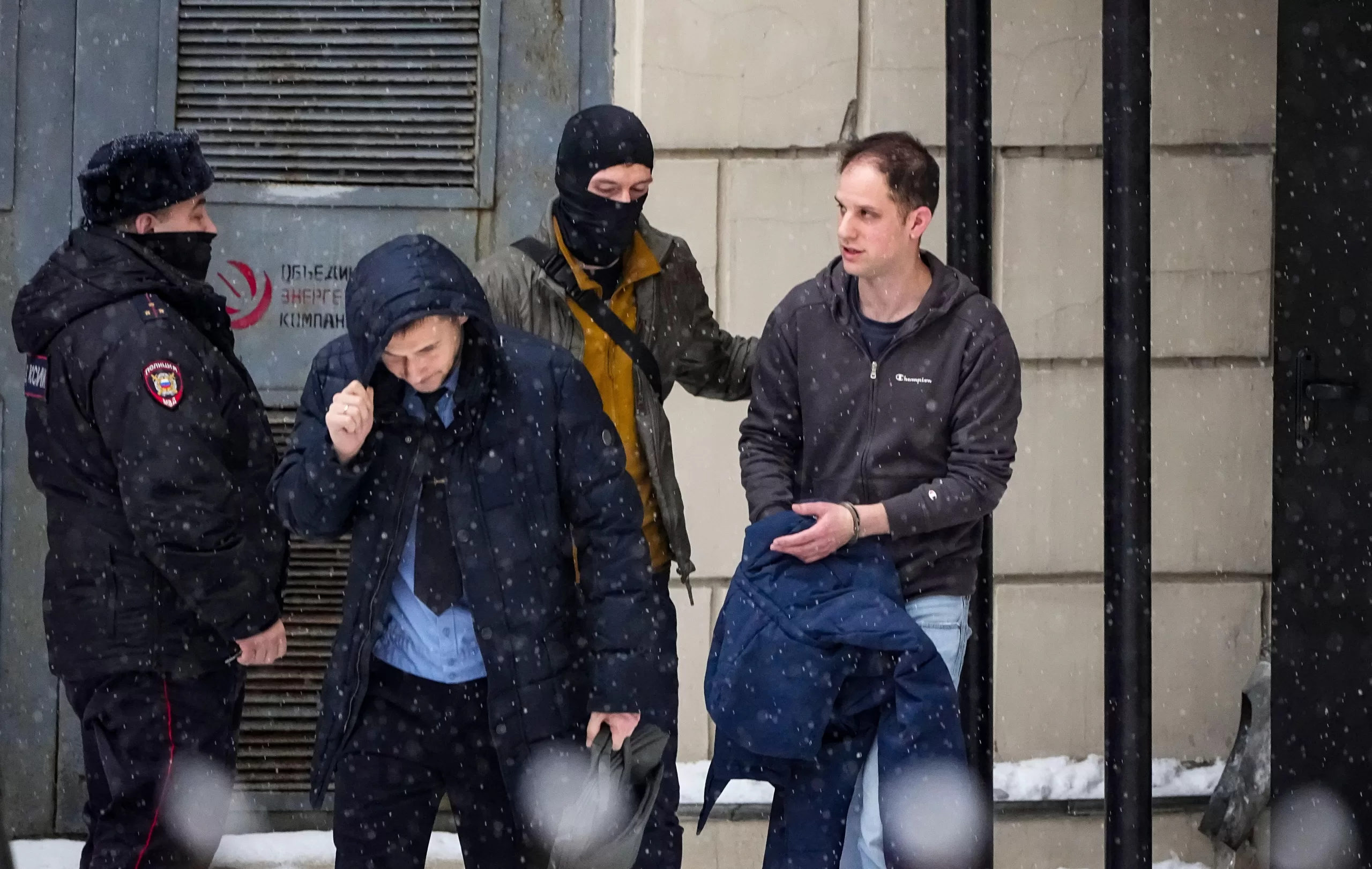This Friday, 29 March, marks the one-year anniversary of Russia’s arrest and unlawful detention of my colleague, Evan Gershkovich, of The Wall Street Journal. That’s one year that Evan has been deprived of his basic rights and confined to a cell 23 hours a day, held on a charge of espionage which he, the US government and the Journal vehemently deny. One year that his parents and his sister have been deprived of their son and brother. And one year since a mass chilling effect descended on the foreign press corps in Russia because of this brazen assault on the freedom of the press.
Evan’s detention is a singular outrage but also part of a much broader pattern. Last year and this year have been brutal for the safety of journalists working to get the facts from dangerous places across the globe, as chronicled by the Committee to Protect Journalists, Reporters Without Borders and others.
Even within Russia, Evan is not alone: Alsu Kurmasheva, a Russian-American reporter for Radio Free Europe/Radio Liberty was seized by Russian authorities on a trip to visit her mother and has been in prison since October. Paul Whelan, of course, has been detained there for five years.
After Evan’s arrest, many news outlets withdrew to cover Russia from Berlin, Warsaw and elsewhere given that Vladimir Putin’s regime has made what you and I understand to be fair and independent reporting effectively a crime.
So we are deprived of fact-based news from a country that is central in defining the future for the USA and other democracies. If we don’t stand up and protest against the silencing of the media on such a vital story, when will we decide the time is right to be loud?
We have been making noise for a year now, to ensure we are drawing as much attention as possible to Evan’s predicament and this broader outrage. We did so in part because journalists run at the story. But we also did so because, in the very early days after Evan’s arrest, we received advice from a trusted source that there will be times to be loud and times to be quiet and this was a time to be loud. Put another way, until there is reason to be quiet – which might suggest a sensitive breakthrough is near at hand – be loud.
We also didn’t have a choice. There may be times when quiet diplomacy can be effective to resolve such hostage issues. In our case, the Russian government had publicly accused our innocent colleague of spying, a message we had to counter as forcefully and as quickly as we could.
In that, as in so many other things over the course of the past year, we were greatly aided by outside help.
The White House, the State Department and the US Senate Intelligence Committee immediately made clear Evan – an accredited reporter in Russia – is not a spy. And in the days, weeks and months that followed, we have benefitted hugely from the interest and support of other news organisations, the international community of journalists and well-wishers the world over to keep awareness of Evan’s situation high.
We know that The Wall Street Journal won’t directly negotiate his release – that is the responsibility of governments. But we are convinced keeping Evan in the spotlight will help set the stage for successful negotiations at the right time. We hope that time is very soon.
Within the Journal, we have learned that being loud is a companywide effort. I don’t think there is a department at Dow Jones & Co., the Journal’s parent, that hasn’t in some way been involved.
The company’s leadership, legal team, the newsroom and communications department would be obvious. Less so, maybe, the marketing team, which we rely on to create ads that we and other newspapers have run on milestones such as 100 days of Evan’s incarceration. Or the advertising department, which has used barter ads to push Evan’s cause on social media. Or government affairs, which has launched a campaign of awareness on Capitol Hill in Washington. Or technology and circulation, which have built a page outside of our paywall on WSJ.com so readers can learn about Evan free of charge. Or our Standards team, which ensures that our advocacy work and our news reporting are kept appropriately apart. Or our individual reporters, who have taken it upon themselves to organise runs, swims, read-a-thons and letter-writing campaigns to highlight Evan’s work and interests.
Yet we also realise all this has yet to pay the one dividend that matters: Evan’s safe return.
So on his one-year anniversary we also ask that you take the time to think of Evan, to talk about him, to amplify stories about him with the hashtag #IStandWithEvan, to explore his work at WSJ.com/evan, and to dig in with us so that the light we shine on Evan and the broader cause of press freedom is brighter than ever.





